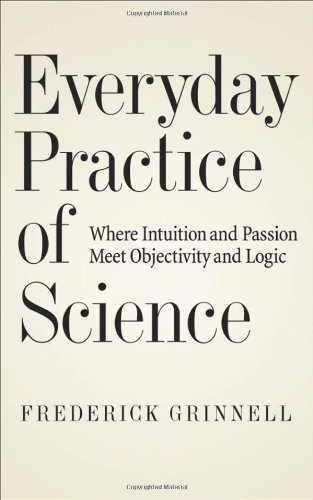

Most ebook files are in PDF format, so you can easily read them using various software such as Foxit Reader or directly on the Google Chrome browser.
Some ebook files are released by publishers in other formats such as .awz, .mobi, .epub, .fb2, etc. You may need to install specific software to read these formats on mobile/PC, such as Calibre.
Please read the tutorial at this link: https://ebookbell.com/faq
We offer FREE conversion to the popular formats you request; however, this may take some time. Therefore, right after payment, please email us, and we will try to provide the service as quickly as possible.
For some exceptional file formats or broken links (if any), please refrain from opening any disputes. Instead, email us first, and we will try to assist within a maximum of 6 hours.
EbookBell Team

4.8
14 reviewsGrinnell describes how real life researchers bring their own interests and passions to their work. Through the discovery process, they try to learn new things about the world. Through the credibility process, they try to convince other scientists that what they have learned is correct. Diversity of interests and backgrounds amongst researchers enhances both discovery and credibility. Achieving success depends on intuition and commitment as well as on logic and objectivity. Grinnell scratches the surface of the anonymous and somewhat boring “scientific method” and shows readers the excitement, risk and adventure underneath.
Everyday Practice of Science also introduces readers to issues about science and society. Practice requires value judgments: what should be done; who should do it; who should pay for it; how much? Balancing scientific opportunities with societal needs depends on appreciating both the promises and the ambiguities of science. Understanding practice informs discussions about how to manage research integrity, conflict of interest and the challenge of modern genetics to human research ethics. Society cannot have the benefits of research without the risks. Finally, in the last chapter, Professor Grinnell emphasizes the importance of faith in the practice of science and describes a holistic framework within which science and religion dynamically interact. conflict of interest and the challenge of modern genetics to human research ethics. Society cannot have the benefits of research without the risks. Finally, in the last chapter, Professor Grinnell emphasizes the importance of faith in the practice of science and describes a holistic framework within which science and religion dynamically interact.ambiguous and convoluted with lots of dead ends. Rather than dispassionate and objective, real life researchers work within the contexts of particular life interests and commitments. Said another way: the book describes the everyday practice of science in a fashion that embraces intuition and passion without abandoning logic and objectivity. Scratch the surface of the anonymous and somewhat boring linear model and one finds excitement, risk and adventure.